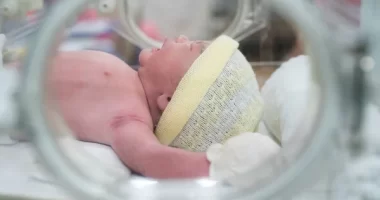Study finds flaws in AI-based antibody discovery for SARS-CoV-2 – A recent study published in the eBioMedicine Journal has revealed flaws in AI tools used for SARS-CoV-2 antibody discovery. The study aimed to develop SARS-CoV-2-nAB cocktails targeting non-overlapping epitopes of its spike (S) receptor-binding domain (RBD). The researchers used a classical workflow, where an AI-based prediction tool enabled rapid selection of antibodies. However, the study found that numerous studies published between 2013 and 2023 describing computational methods for sequence-based epitope prediction lack experimental validation. The study established a library of anti-SARS-CoV-2 nABs for passive immunization of patients and used a surrogate neutralization assay for screening SARS-CoV-2 neutralizing activity in serum. The researchers performed biolayer interferometry (BLI), mutational screening, and cryogenic-electron microscopy (cryo-EM) analyses to establish the potency of the selected antibodies in vivo. Despite the potential of AI-based epitope prediction in SARS-CoV-2 antibody discovery, the study highlights the need for caution and experimental validation to ensure the accuracy and effectiveness of these tools.
Findings
Researchers identified two potent antibodies, UZGENT_A3 and UZGENT_G5, with superior binding affinity to the virus compared to existing treatments. A cocktail, UZGENT-COV2, significantly reduced viral load in hamsters, showcasing its potential effectiveness. However, the study exposed a significant limitation. An AI tool used to predict antibody-virus interactions failed to accurately identify the actual binding sites of UZGENT_A3 and UZGENT_G5. This discrepancy highlights the need for experimental validation to ensure AI tools contribute effectively to antibody discovery.
Despite UZGENT-COV2’s promise, it showed reduced effectiveness against key variants like Beta and Omicron. This suggests the identified epitopes may not be fully protective. Experimental validation could have helped identify broader-spectrum epitopes, potentially leading to a more robust antibody cocktail. This study underscores the importance of combining cutting-edge tools with rigorous experimentation. While AI holds immense potential in antibody discovery, its limitations must be acknowledged and addressed through thorough validation. By embracing a nuanced approach, researchers can develop more effective treatments to combat the evolving threat of SARS-CoV-2.
How can the flaws in the AI tools used for sars-cov-2 antibody discovery be addressed?
The flaws in AI tools used for SARS-CoV-2 antibody discovery can be addressed through the following measures:
Experimental Validation: It is essential to validate the predictions of AI tools through experimental methods to ensure their accuracy and effectiveness.
- Integration of AI with Experimental Techniques: Integrating AI-based epitope prediction with experimental validation methods such as biolayer interferometry, mutational screening, and cryogenic-electron microscopy can enhance the reliability of the antibody discovery process.
- Data Quality Assurance: Utilizing machine learning techniques to assure data quality with minimal human interaction can improve the robustness of AI tools in antibody discovery.
- Caution and Warranted Approach: Researchers and practitioners should exercise caution and a warranted approach when relying on AI-based epitope prediction in SARS-CoV-2 antibody discovery, emphasizing the need for experimental validation
By implementing these measures, the reliability and accuracy of AI tools in SARS-CoV-2 antibody discovery can be improved, contributing to more effective and efficient antibody development processes.
What are the alternative methods for sars-cov-2 antibody discovery?
Alternative methods for SARS-CoV-2 antibody discovery include:
B Cell Receptor Sequencing and Ligand Blocking: Efficient discovery of SARS-CoV-2-neutralizing antibodies via B cell receptor sequencing and ligand blocking has been employed to discover SARS-CoV-2-specific antibodies from individuals with past SARS-CoV-2 infection.
Coldspot-Guided Method: This method identified antibodies against highly conserved SARS-CoV-2 epitopes that recognize all variants and other coronaviruses.
Monoclonal Antibodies: Monoclonal antibodies are an ideal alternative to hyperimmune sera for SARS-CoV-2 neutralization due to their specific pharmacological and safety profiles.
Single-Cell Sequencing and Mammalian Display: Through the use of deep sequencing and enrichment analysis, unique antibodies with specificity to SARS-CoV-2 have been discovered, offering a promising approach to antibody discovery.
These alternative methods offer diverse approaches to SARS-CoV-2 antibody discovery, contributing to the development of effective therapeutic and preventive measures against the virus.
ALSO READ: Researchers Uncover Link Between Inherited Genes and Rare Blood Cancer








